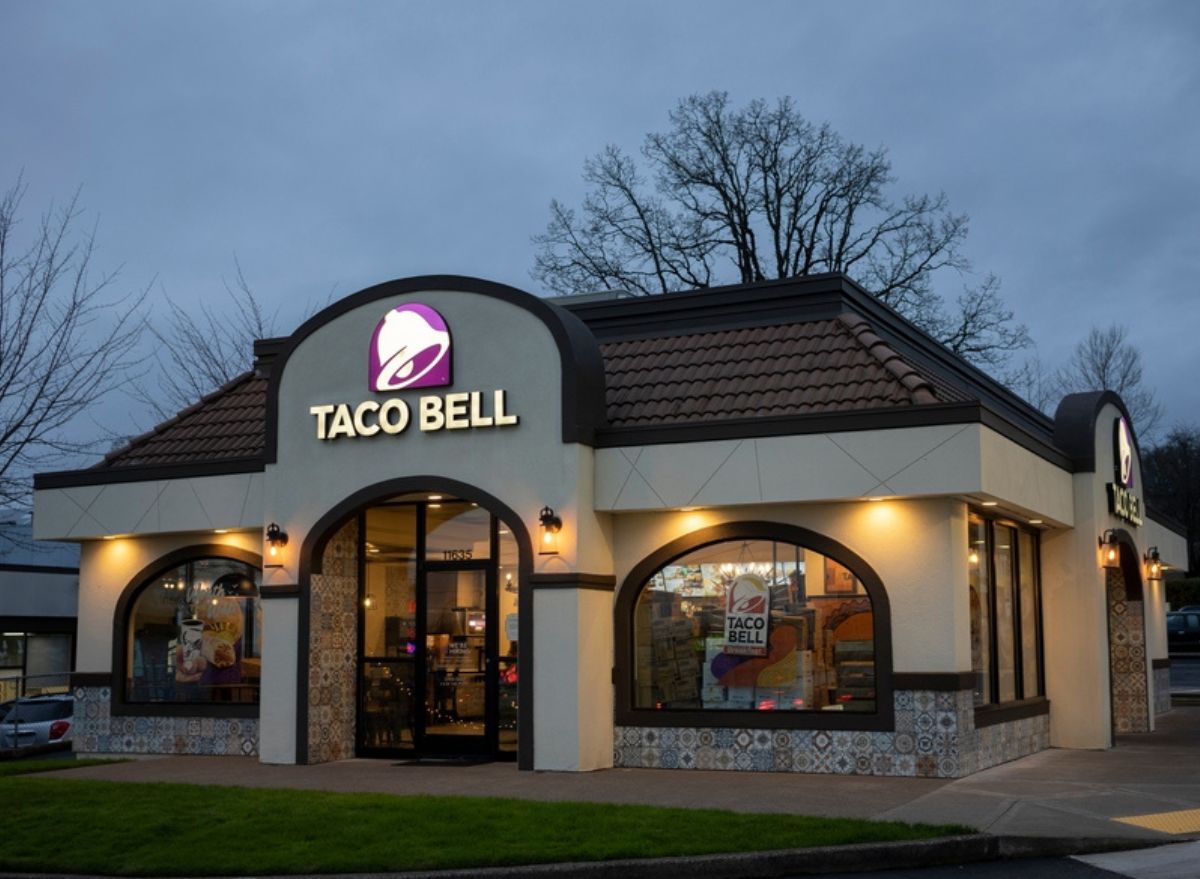Taco Bell, KFC, and Pizza Hut Are Planning to Take Over the World

A new Taco Bell, KFC, or Pizza Hut is coming soon to a town near you, according to the latest projections from Yum! Brands, which include plans for expansion across the world.
Yum is considered the biggest quick-service restaurant company in the world. While you may not be all that familiar with the Yum name, you definitely know their brands: KFC, Pizza Hut, Taco Bell, and Habit Burger. Earlier this week Yum announced plans to add at least 100,000 additional global restaurants, and increased its long-term unit-count growth projections to 5%.
Already an undeniable powerhouse in the casual dining space, Yum operates over 50,000 restaurants across 150 countries. Now, the global brand believes there's ample white space, or opportunity, to expand in a major way.
"We think we can add an additional 100,000 restaurants," Yum Brands CFO Chris Turner recently explained in an interview. "We think all brands should be growing."
Right now, Yum is very much a contender for the fast food crown, but it isn't king of the hill. The Louisville, Kentucky-based company still lags behind industry leaders like McDonald's and Subway in terms of recognition and profitability. For example, in 2021 Mickey D's brought in around $23 billion in revenue. Yum, on the other hand, reported $6.58 billion. Also, while Yum may boast more overall locations than either McDonald's or Subway (both around 39,000 global units), Yum's restaurants are spread across their four main brands.
If successful, these ambitious expansion plans could position Yum to take over the fast-food world.
Jumping back into the numbers, a 5% growth rate may not sound all that major, but when your company operates 54,000 restaurants around the world, 5% works out to 2,700 locations. Yum had a fantastic 2021 in terms of expansion, opening an astounding 3,100 new locations, and executives feel all of Yum's chains can exceed those numbers moving forward.
"We really believe every one of our brands can double their store count over time," CEO David Gibbs added.
A significant portion of that growth will likely come from Taco Bell, which currently only boasts around 7,000 U.S. locations—a far cry from McDonald's 13,000+ domestic units.
"We believe that as we grow [average unit volumes] and margins stay strong, there would be no reason we couldn't have the same number here in the U.S.," Mark King, CEO of Taco Bell, said.
The international market also represents a big opportunity for Taco Bell. Only a handful of countries are currently home to more than 100 Taco Bell locations (Spain, India, Portugal, etc). Up until now, Yum had prioritized the international expansion of its other brands like KFC or Pizza Hut, but in 2020 Julie Felss Masino was named president of Taco Bell International. Since then, she's been focusing on bringing Taco Bell's Mexican cuisine to more countries and markets. By the end of this year, Yum expects to have over 1,000 Taco Bell international locations.
"We're only in 31 markets today," she commented. "If you just look at the 150 markets that Yum operates in around the world, there's just so much white space there. There's multiple thousands [of restaurants] still available to be built there."
KFC and Pizza Hut, on the other hand, have enjoyed great growth and success outside the United States. Pizza Hut boasts close to 12,000 international units and KFC has 23,000 global restaurants. Stateside, however, has been a different story in recent years. KFC's domestic restaurant tally had been declining for nearly two decades before 2021, and Pizza Hut is just now on track to open new locations for the first time in nearly a decade (2014).
Pizza Hut points to new, well-capitalized franchisees as a big reason why more domestic locations are beginning to pop up.
"Sixty-five percent of our U.S. restaurants are in the hands of franchisee owners that have joined us since 2015," Aaron Powell, Pizza Hut's CEO, said to investors. "Ninety percent of our gross builds are with those new franchisees. We have brought into the system some well capitalized, very capable, very committed franchisees."
"We're not done building stores in the U.S.," Gibbs added.









